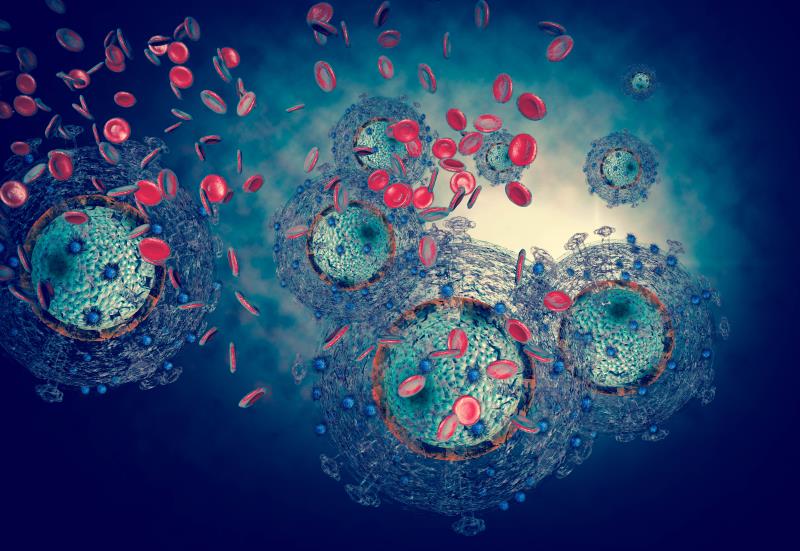
Use of the investigational drug fostemsavir, a prodrug of the first-in-class HIV-1 attachment inhibitor temsavir, led to a significant reduction in the HIV-1 RNA* level of adults with multidrug-resistant HIV-1 infection with limited antiretroviral therapy (ART) options, according to the results of the ongoing phase III BRIGHTE** trial.
“[Our findings showed that] fostemsavir had significantly better efficacy than placebo after 8 days of functional monotherapy [in this patient setting]. All patients … had exhausted all approved agents in at least four classes of ART drugs and had a low CD4+*** T-cell count,” said the researchers.
“[S]ome patients with … HIV-1 infection who have undergone multiple ARTs [have limited] options … owing to multidrug resistance, contraindications to or unacceptable side effects with various drugs, or other safety concerns. These patients have a pressing need for new classes of ART drugs with novel mechanisms of action,” they added.
Fostemsavir has a novel mechanism with no in vitro cross-resistance to currently available classes of ART drugs, can be used regardless of HIV-1 tropism, has a favourable drug-drug interaction profile, and has shown both immunologic and virologic responses. [Antimicrob Agents Chemother 2015;59:3816-3822; J Acquir Immune Defic Syndr 2018;77:299-307]
The study comprised two cohorts including 371 adults who were failing their current ART regimen. In the first cohort# (n=272), participants were randomized 3:1 to add fostemsavir 600 mg twice daily or placebo to their failing regimen for 8 days, followed by open-label fostemsavir plus optimized background therapy. In the second cohort, 99 patients with no remaining ART alternatives were started on open-label fostemsavir plus optimized background therapy. [N Engl J Med 2020;382:1232-1243]
At day 8, there was a significantly greater reduction in HIV-1 RNA level with fostemsavir vs placebo (mean, 0.79 vs 0.17 log10 copies/mL; between-group difference, -0.63 log10 copies per mL, 95 percent confidence interval, -0.81 to -0.44; p<0.001).
Efficacy was sustained through 48 weeks as reflected by the virologic response (HIV-1 RNA level, <40 copies per mL) in 54 percent and 38 percent of randomized and nonrandomized adults, respectively. “The durability of response was shown by the maintenance of response rates from week 24 to 48 despite the ongoing loss of patients from the trial for reasons other than efficacy,” explained the researchers.
Week 48 also saw a progressive improvement in CD4+ T-cell count with fostemsavir vs placebo, both in the randomized and nonrandomized cohorts (mean change from baseline, 139 and 64 cells/mm3, respectively).
Adverse event (AE) rates were higher in the nonrandomized vs randomized cohort (47 percent vs 26 percent [grade 3/4] and 44 percent vs 31 percent [serious AEs]). Only 7 percent of fostemsavir recipients discontinued treatment due to AEs, which were primarily infections. The most common drug-related AEs were nausea and diarrhoea, which correlated with another fostemsavir trial conducted in a healthier, less heavily pretreated group. [Lancet HIV 2015;2:e427-e437]
Reflective of real-world practice
The researchers pointed out that while most participants received at least five ART regimens over >15 years, the lack of standardization in background therapy is reflective of real-world practice. Moreover, despite the highly individualized background regimen, this limitation is unavoidable and inherent to the needs of this patient subset, they said.
“[Taken together, the sustained] efficacy … through 48 weeks supports further development of fostemsavir as a therapeutic option [in this patient setting],” said the researchers. The trial shall continue until patients can access fostemsavir through an additional option, a rollover study, or until marketing approval is in place, they added.